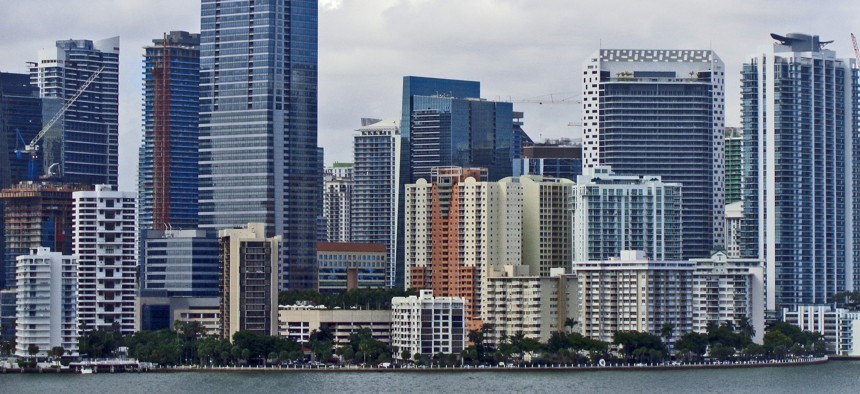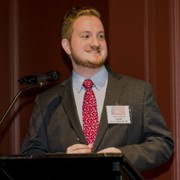Policy
Miami-Dade delegation fights for fair share in Tallahassee
Legislators are prioritizing budget items, housing issues during session.

Downtown Miami. Image by jessica45 from Pixabay
Republican dominance in Miami-Dade County during the 2022 election cycle can be seen in the makeup of their legislators in Tallahassee. Fourteen of the 21 members of the Miami-Dade County delegation are Republicans. Several of their newest members, like state Sen. Alexis Calatayud and state Rep. Fabían Basabe, knocked off sizable Democratic challengers.
The Republicans in the delegation have stayed busy during the first few weeks of session, championing some of the favored legislation by DeSantis and other legislative leadership. That’s not their only priority, according to leadership within their caucus. They're focused on issues critical to their constituents as well, such as expanding housing availability and protecting from sea-level rise, while ensuring their districts get their fair share in the 2023-24 budget.
Budget items a priority
When negotiations on the state budget begin in earnest later this legislative session, a good chunk of the money they will be allocating will come from Miami-Dade County. Miami-Dade ranks sixth on the state’s per-capita property tax levies, while being the most populous county in Florida with 2.6 million residents. It also leads all counties in sales tax receipts, bringing in between $5.5 billion and $7.4 billion each month in tax revenue during 2022.
The Miami-Dade delegation’s chair, state Sen. Ana Maria Rodriguez, told City & State that her county is considered a “donor county,” one that gives more in tax revenue than it gets back from the state. For that reason, ensuring their constituents get as much of their tax dollars back to benefit organizations and projects in their community is the delegation’s primary goal.
Budget negotiations will focus on the differences between the House and Senate versions of the state budget, both being hundreds of millions of dollars apart. What projects – and how much they get – is still undecided.
Rodriguez said the delegation is pursuing dozens of funding priorities, but pointed out funding for several health-related initiatives. She mentioned the Miami Lighthouse for the Blind, a non-profit that provides training and treatment for people of all ages who are blind or visually impaired, and the Miami Project to Cure Paralysis, a center in the University of Miami Miller School of Medicine that researches treatment for spinal cord and traumatic brain injuries. “There are so many agencies that provide important services for our residents, and they need that funding to continue to move forward with their missions,” Rodriguez said.
State Rep. Vicki Lopez, said she is advocating for several line items, ranging from a flood control and mitigation project at Key Biscayne to a pedestrian safety program in the City of Miami.
Environmental bills
Across the country, South Florida is projected to be most affected by climate change, specifically sea level rise. Several members of Miami-Dade’s delegation are championing bills meant to combat the rising sea, as well as other environmental issues that affect ecosystems in South Florida.
These bills include:
— SB 1170, sponsored by Calatayud, allows Florida’s Department of Environmental Protection (DEP) to provide grants to counties for conducting feasibility studies around flooding and sea level rise, as well as projects to reduce its impact.
— SB 100, sponsored by state Sen. Ileana Garcia, requires DEP to adopt rules for mangrove replanting and restoration, specifically to address significant erosion in areas of critical concern and to assist in Everglades restoration and Biscayne Bay revitalization efforts.
— SB 1072, sponsored by Rodriguez, requires an adverse impact report be done before a permit is approved for any beach restoration projects or maintenance dredging of deepwater ports.
— SB 546, sponsored by state Sen. Bryan Avila, requires DEP to submit a status report on the cleanup of the Osborne Reef environmental disaster, a failed artificial reef project using tires from the 1970’s which has damaged the ecosystem further.
— HB 827, sponsored by Lopez and Basabe, changes 2020’s Clean Waterways Act, legislation aimed at stopping nutrient pollution in Florida’s waterways, to allow all bodies of water to be eligible for grant funding instead of bodies of water in certain areas.
Housing and Condos
Statewide, Floridians have been met with fast-rising rent and a lack of affordable housing. Members of the Miami-Dade delegation have helped combat it.
Calatayud, for instance, sponsored the Live Local Act, affordable housing legislation championed by Senate President Kathleen Passidomo. The bill was just signed into law by Gov. Ron DeSantis, and is expected to bring at least $20 million to Miami-Dade to assist in the construction of affordable housing.
Condo safety is also a priority for the caucus this year, coming up on the two-year anniversary of the Surfside collapse. Lopez, whose district is one of the higher condo-concentrated areas in the state, has sponsored a bill that makes changes to last year’s condo reform bill. HB 1395 makes it so all condo buildings must get inspected after 25 years of construction.
Under current law, in-land condos only needed an inspection after 30 years. The bill also requires that associations notify potential condo buyers when they are past due on conducting their inspection, and expands the type of professions that can conduct inspections to ensure there are enough people to complete them.
Lopez said her bill will further boost the protections passed after the Surfside tragedy. “It was such an important piece of legislation when it was passed. Now it is being clarified, because as you have to implement policy, oftentimes you have to make tweaks that you did not think about when you were passing it,” Lopez said.
Rodriguez said legislation pursuing affordable housing and ensuring Miami-Dade residents are safe in their homes is critical for the delegation. “We give a lot of money to the state. It is important that we get back what our constituents need, whether it’s funding for important programs or affordable housing solutions,” she said.
Contact Tristan Wood at twood@cityandstatefl.com and follow him on Twitter: @TristanDWood.
NEXT STORY: Florida House on verge of passing bill to push back public school start times
